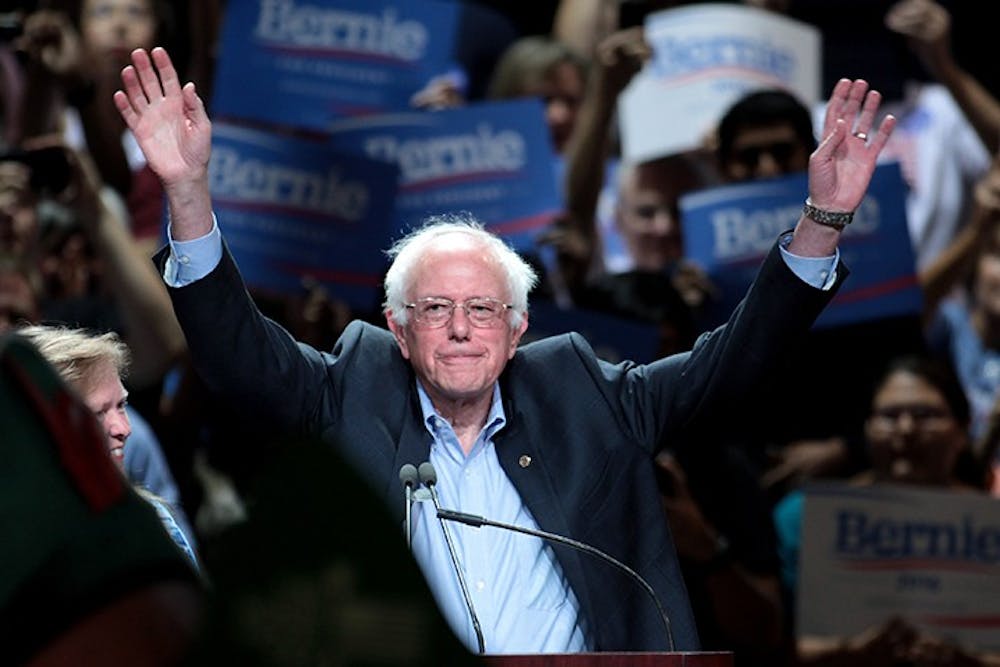Despite an impressive run at the Democratic nomination, a presidential election with Bernie Sanders’ name on the ballot remains unlikely.
While the most recent polls show the senator from Vermont trailing presidential candidate Hillary Clinton at 14.5 percent, the odds of Sanders seizing the nomination remain astronomically against him.
After being virtually dragged into the race by Democrats, Vice President Joe Biden has garnered more than his fair share of support from traditional Democrats. While this should come as a surprise to no one, it does make Sanders’ polling numbers look better than they actually are.
Clinton and Biden vie for the support of the same demographics. Both are exceedingly appealing to more traditional Democrats that are unwilling to vote for an overt socialist. Unfortunately for Sanders, those voters comprise a majority of the Democratic party.
At the end of the day, both Democrats and Republicans will continue to nominate their respective party’s prototypical candidate. It is the same reason that Sen. Rand Paul cannot get the nomination: Both sides are comfortable with nominating the same type of candidate at every election. This reluctance to change will ultimately weigh Sanders down until his polling numbers dwindle into nothingness.
Even if the Democrats decided that Sanders was their most viable option, it seems impossible that more than half of the country would vote for him. Should Clinton or Biden get the nomination, the Democrats have a much greater chance of appealing to moderate Republicans and Independents. Sanders, on the other hand, is coming off as too far left, even for the Democrats.
The fact that Clinton remains at No. 1 one (with approximately 40 percent of her party’s approval) after her numerous scandals says a lot about the negative connotation that the idea of socialism carries. Surprisingly, Clinton’s perpetually scandal-tarnished legacy is still thought of as less damaging than Sanders’ socialist political beliefs.
Whether or not Clinton’s scandals cost the Democrats the White House will remain unanswered until 2016, but it feels like the wrong move, given Sanders’ clean slate.
While the polarization of American politics marginally reduces the tendency of swing-voting, Democrats know that the bulk of Sanders’ support is shouldered by ethnic minorities and young voters, two smaller demographics in the American electorate.
In the last election, ethnic minorities made up 28 percent of the electorate, and voters aged 18-24 accounted for 19 percent, according to ropercenter.uconn.edu. Comparatively, individuals aged 30-64 made up 65 percent of the electorate, and white Americans 72 percent.
Despite a contentious campaign fueled by a growing grassroots movement, the current political climate of the U.S. remains unsuitable for a president like Sanders.
Ultimately, Sanders’ largest underlying issue is that America is not prepared to become a social democracy. It is fair to argue that the U.S. has made some Western Europe-like policy changes in recent months, but they pale in comparison to the type of institutional overhaul that Sanders has in mind. The U.S.’s GDP could most likely support some of Sanders’ plans for the federal government, but it does not matter. The only way Sanders will win a presidential election is if the country decides on its own to move toward progressive and socialistic policy changes.




The Slate welcomes thoughtful discussion on all of our stories, but please keep comments civil and on-topic. Read our full guidelines here.